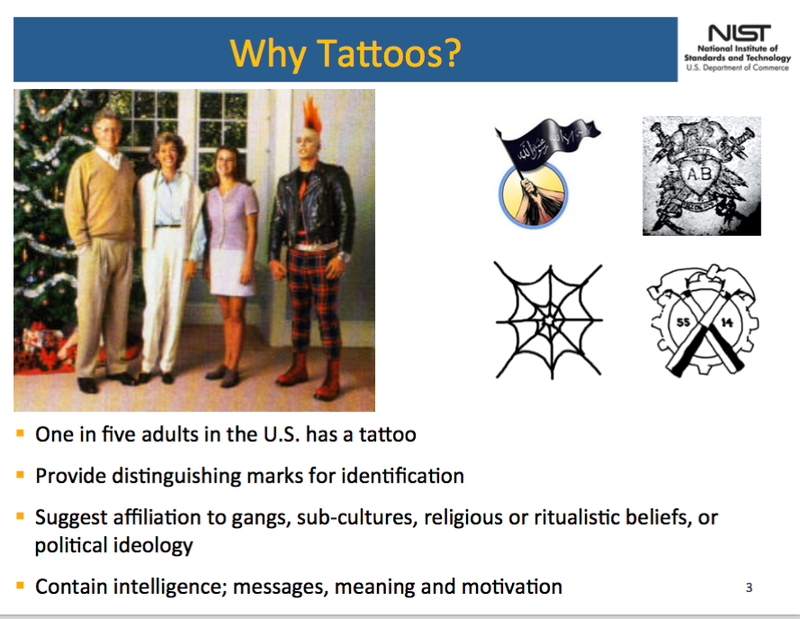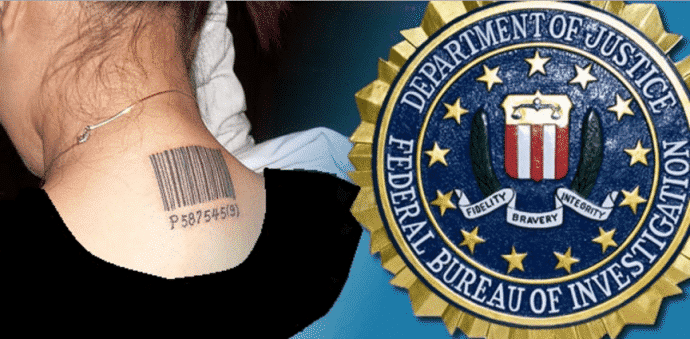New art of surveillance : FBI is developing a tattoo-reading software to keep track on criminals
It has been just revealed that the Federal Bureau of Investigation (FBI) is working with government researchers to develop advanced tattoo recognition technology, according to an investigation by Electronic Frontier Foundation (EFF), a civil rights advocacy group. This would allow law enforcement to class and identify people based on their tattoos to find out their “affiliation to gangs, subcultures, religious or ritualistic beliefs, or political ideology.”
Computer scientists at the US National Institute of Standards and Technology (NIST) will soon begin the second round of an independent study into which biometric matching algorithms work best for pairing tattoos with criminal suspects, unidentified victims, and alleged gang members.
However, such a program has raised grave questions about the privacy safeguards in place and research ethics. According to the EFF report, the American law enforcement wants the new technology to decode the tattoos that “contain intelligence, messages, meaning and motivation.” The project is part of a broader movement from American law enforcement to use advanced algorithms and big datasets to carry out their work. These projects could be faulty and prejudiced dread the civil liberties advocates.

The project began in 2014 at the US National Institute for Standards and Technology (NIST) that used a database of prisoner’s tattoos. The technology developed by the NIST would “map connections between people with similarly themed tattoos or make inferences about people from their tattoos,” the EFF reports. The EFF investigation also claims that the researchers overlooked basic ethical government research standards, particularly the ones related to prisoners.
The methodology of the NIST research program also raises ethical questions. It is unlikely that the researchers were granted permission from the inmates, and there was no documentation in any of the materials the EFF reviewed, publicly or through freedom of information requests. “They really are treating prisoners like they’re an exploitable database,” Dave Maass, a researcher with the EFF said.
The 15,000 images of tattoos came from prisoners and arrestees never gave their consent. The researchers only sought permission from supervisors only after they had carried out their initial research. They also didn’t reveal they data they were using came from pictures of prisoners and arrestees.
In addition to programs like tattoo identification and analysis, local police are also increasingly using facial recognition technology to pursue and identify criminals.
NIST and the FBI will enter a new phase of the project that will test the current tattoo recognition systems at a much broader scale over the course of the summer. They hope to start a new phase of the project with 100,000 tattoo images collected from the Tennessee Department of Corrections, Michigan State Police, and Pinellas County Sheriff’s Office in Florida.
A never seen before level of power has been given to law enforcement by these systems. Imagine a database that let’s police or investigators to search for people based on the last time their face was identified by a camera or by the tattoos they and their peers have.
However, if used in actual investigations, it could lead to profiling and false positives. Just because someone has a tattoo that is similar to ones worn by certain gang members doesn’t mean they’ve committed any crime, or that they’re also a gang member. In California, tattoos are one factor that has already led people to be incorrectly added to a database of gang members.
Tattoos have also been a factor in immigration decisions. Many of the Mexican immigrants to the U.S. have said their applications for visas were refused, as they had what the State Department believed were gang-related tattoos.
A database that classifies citizens based on tattoos that may or may not echo their religious or political beliefs, social connections, or interests feels not only disturbing but also awfully invasive, argues the EFF argues.
Due to the disregard for distinctive government research practices, the EFF is calling for the research to be suspended.
